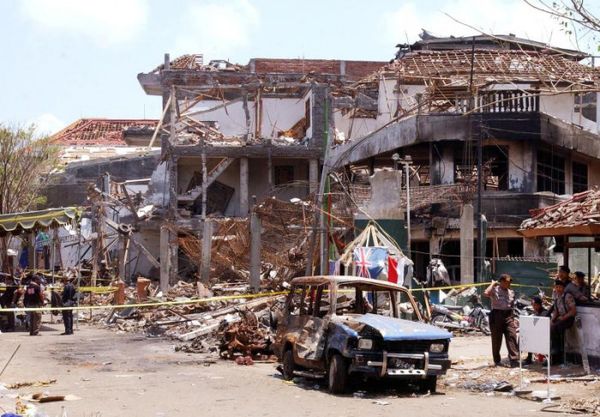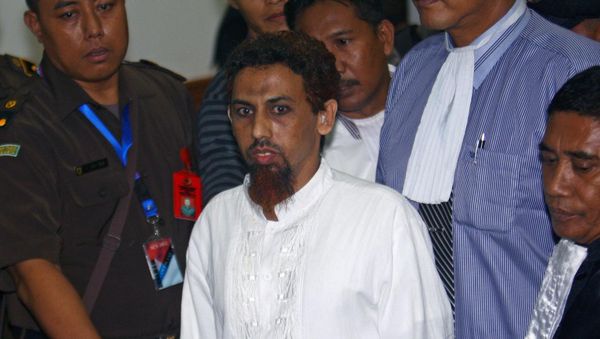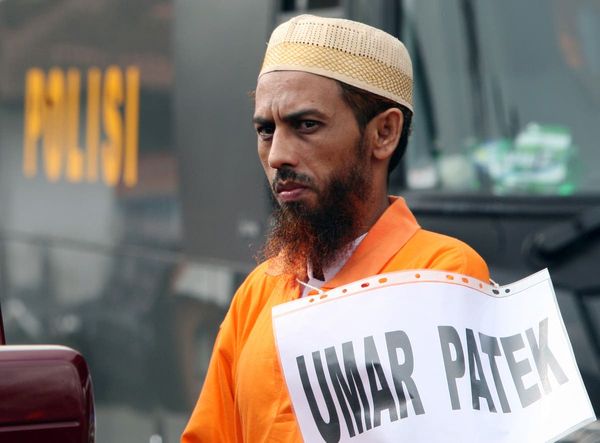
Jakarta (AFP) - One of the bombmakers in the Bali blasts that killed more than 200 people two decades ago was released on parole on Wednesday after serving half of his sentence, an Indonesian official said, despite protests from Australia.
Umar Patek was a member of an Al Qaeda-linked group that detonated devices at a bar and nightclub on the Indonesian resort island in October 2002, killing 202 people including 88 Australians in Southeast Asia's deadliest terror attack.
"Since today, Patek has his status changed to be under the supervision of Surabaya penitentiary," Law and Human Rights Ministry spokesperson Rika Aprianti told AFP, referring to the facility in the East Java city where he was released.
He will be required to follow a training programme until 2030 and his parole will be revoked if he commits a violation in that period, she said.
Patek was found to have made the bombs used in the assault on Bali, a Hindu island popular with foreign tourists.
He was released from prison in Surabaya at 8 am (0100 GMT) Wednesday and was escorted by authorities as no one from his family came to pick him up.
"He is obliged to follow the office's guidance and must not commit any violence to keep his parole," Aprianti said.
Authorities believe the convicted extremist has "shown changes" after undergoing a deradicalisation programme, according to the official.
"Most importantly, he has pledged allegiance to the unitary state of the Republic of Indonesia," she said.
Indonesia has previously granted term cuts to many prisoners who have served most of their sentence, have undergone rehabilitation programmes or demonstrated good behaviour.
But experts have warned that releasing Patek and fellow Bali bomber Ali Imron -- who is serving a life sentence -- could boost their notoriety upon release.
Patek was captured in 2011 after nearly a decade on the run with a $1 million bounty on his head in Abbottabad, the same Pakistani town where Osama bin Laden was killed by US special forces.
'Contempt'
Prosecutors only sought a life sentence for the 52-year-old on a charge of premeditated murder because he showed remorse during his 2012 trial.
The decision to free him early is likely to anger Australia, which lost the most of any of the 21 countries whose nationals were killed.
Australian Prime Minister Anthony Albanese in August said he had nothing but "contempt" and disgust for Patek's actions, saying his early release would only renew distress and trauma for the victims' grieving families.
In October, an Australian department of foreign affairs and trade spokesperson told AFP it had "made representations" to Jakarta about Patek's release.
"Ultimately, these are matters for the Government of Indonesia and its domestic legal processes," the spokesperson said.
The Australian embassy in Jakarta did not immediately respond to a request for comment.
Those protests came ahead of the 20th anniversary of the bombings in October, where hundreds of mourners and survivors commemorated the dead in Bali and in Australia.
Grieving families and representatives from several embassies attended memorial services in Bali, including Albanese who said the blasts had left a permanent mark on Australia's national identity in a similar fashion to the devastating Gallipoli campaign of World War I.
The attacks on a nightclub and bar were the deadliest in Indonesian history and led to a crackdown on extremism in the country, which has the largest Muslim population in the world.
Tied side-by-side to wooden posts on a small prison island, most of the attackers were executed by firing squad in 2008 after a years-long probe.
Imron -- the last surviving attacker -- also helped to mastermind the bombings with Patek, building the devices before training the attackers who detonated a suicide vest and a van loaded with explosives in the popular tourist area of Kuta.
Patek's release came on the same day that a suspected Islamic militant suicide bomber killed a police officer and wounded 10 other people in an attack on a police station in the Javan city of Bandung.
The attacker had already served four years in a maximum security prison for his involvement in a 2017 bombing.










